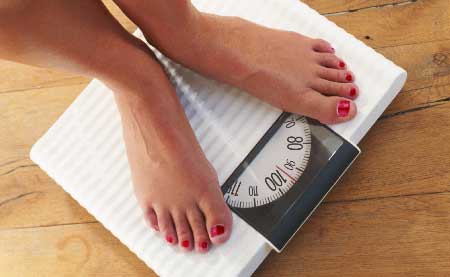Being conscious of weight and appearance isn’t unusual. We often hear adults and teens say they’re going on diets. Diets turn dangerous when they become eating disorders, such as anorexia and bulimia, said Stacy Braun, Ph.D., child and adolescent psychologist with Marshfield Clinic Health System.

“It starts with watching what you eat, and for some people, it can spiral out of control,” she said.
Eating disorders are most common in teen girls and young women. These disorders affect about 30 million people in the U.S. and can have severe mental and physical health consequences.
Young male and female athletes who participate in sports that focus on individual performance, appearance, diet, and weight can also develop an eating disorder.
Two common eating disorders
Anorexia and bulimia are the two most common eating disorders.
Anorexia involves self-starvation, low body weight and fear of gaining weight.
People with bulimia binge on large amounts of food and then purge by vomiting or taking laxatives.
Someone who doesn’t meet the criteria for anorexia or bulimia may have an unspecified type of eating disorder if they have other symptoms mentioned below.
Eating disorder signs
“Typical dieters are flexible,” Braun said. “Someone with an eating disorder develops rigid habits, and food becomes a constant focus.”
Obsession with food, dieting and weight are the biggest red flags for an eating disorder, such as anorexia and bulimia.
Eating disorder signs related to eating habits include:
- Refusing to eat in front of people
- Refusing to eat certain foods
- Cutting food into tiny pieces
- Hiding food
- Large amounts of food disappearing from the refrigerator and cabinets
The symptoms may be more noticeable around the holidays when families get together for meals.
Other signs of an eating disorder are:
- Complaining about weight or appearance
- Excessive exercise
- Frequently checking weight
- Going to the bathroom right after meals
Eating disorder treatment
Primary care and behavioral health providers, dietitians and other specialists work together to help patients recover from eating disorders.
Patients often experience depression, anxiety, low self-esteem, irritability, trouble concentrating and a skewed perception of what is healthy. Having an eating disorder increases the risk for suicide, Braun said.
Serious physical eating disorder side effects like heart, kidney, digestive, hormonal and dental problems may require treatment by a specialist.
If you or your child has signs of an eating disorder, talk to a Marshfield Children’s provider.
Schedule appointment Message your provider
Related Shine365 articles
To pop or not to pop: Four things to know about popping pimples

